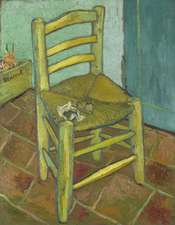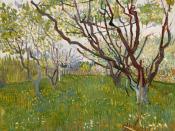Can an art work still be valuable if it is not original/ authentic (should it be?)?
An original artwork can be judged as more valuable than a forgery from an artistic point of view. All art works can be identified in light of the performance engaged with to create them. Thus understanding a work of art involves grasping in some way the achievement that the individual work represents. This leads to the origin of the art work; the artist and the context.
For example, if one were visiting a gallery and looking at a Van Gogh and it turned out not to be a Van Gogh, one would feel ultimately cheated. From a purely aesthetic perspective, beauty is in the eye of the beholder and a work is as valuable after finding out it is a forgery as opposed to before when it was recognized as an original.
Yet from an artistic point of view the work would hold less value, not to mention less monetary value within the art market.
This is because a forgery has an invalid historical context compared with the original. Preference for originals is not just snobbery, and it is not a mistake of confusing aesthetics with historic properties but rather that originals entail the entire creative process. If the work is not original it no longer enlightens us about the culture in which it was produced. It no longer carriers a message from the past; it no longer serves the communicative function that is inherent in all authentic artifacts. Ultimately a work can still be valuable if it is not original, but only from an aesthetic perspective.


